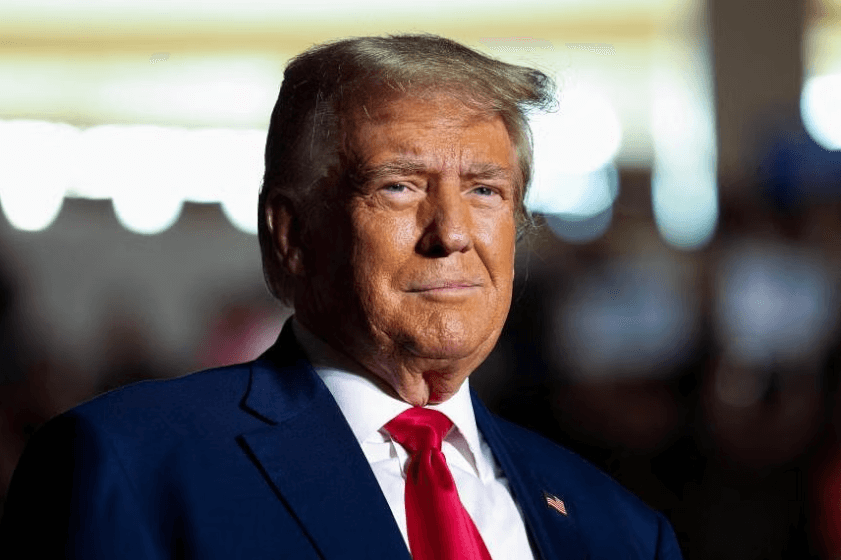
Image:The Straits Times
In a historic indictment, Donald Trump has been charged with various offences in connection with his efforts to reverse the results of the 2020 election, increasing the outgoing president’s legal woes.
The charges, filed on Tuesday in federal district court in Washington DC by special counsel Jack Smith, accuse Trump of conspiracies aimed at a “bedrock function of the United States federal government: the nation’s process of collecting, counting, and certifying the results of the presidential election.”
The following are some major findings from the most recent indictment:
Trump Is Facing Four Counts.
The former president is charged with conspiracy to defraud the United States government, conspiracy to impede an official procedure, conspiracy against rights, and obstruction and attempted obstruction of an official proceeding.
Prosecutors laid out their case in detail in the 45-page indictment, charging Trump deliberately disseminated false charges of fraud, convened fraudulent slates of electors, and attempted to block election certification on January 6.
The former president was “determined to remain in power”
According to federal prosecutors, Trump is “determined to remain in power.” According to prosecutors, Trump propagated lies for two months following his election loss in order to create a “intense national atmosphere of mistrust and anger” and “erode public faith in the administration of the election.” They mentioned Georgia as an example, where Trump claimed more than 10,000 dead individuals voted in four days despite the state’s chief elections official telling him that was not the case.
Six unindicted co-conspirators have been identified.
As part of Smith’s investigation, the indictment includes six unindicted co-conspirators, including four anonymous attorneys who allegedly supported Trump in his attempt to tamper with the 2020 election results, as well as an unnamed justice department official and an unnamed political consultant.
While not identified in the paper, the indictment specifics show that such people include Rudy Giuliani, John Eastman, and Jeff Clark, a former Department of Justice official.
The special prosecutor desires a swift trial.
It’s unclear when the matter will go to trial, but Jack Smith says his office would push for a quick resolution.
“I must emphasize that the indictment is only an allegation and that the defendant must be presumed innocent until proven guilty, beyond a reasonable doubt, in a court of law,” Smith said in a press conference on Tuesday.
Trump is planning a complex schedule for 2024. The former president’s criminal trial in New York on hush money payments to porn star Stormy Daniels will begin in March 2024. In May 2024, he will stand trial in Florida for keeping national security materials at his Mar-a-Lago estate and hindering the Justice Department’s efforts to obtain them. The Iowa caucuses, the first volley in the Republican fight for the presidency in 2024, are set to take place in January.
Indictments will not remove Trump from office.
Trump’s indictments, as well as any conviction, will not prevent him from running for president again.
However, a thrice-indicted politician winning the Republican presidential nomination would be extremely unprecedented. In recent history, the only other presidential hopeful to run while under indictment was former Texas governor Rick Perry, who ran for the Republican nomination in 2016 after being charged with abuse of authority. Another candidate, leftist Eugene Debs, ran while imprisoned.
So far, Trump has received three indictments. Smith, who indicted him in the case on January 6, has also accused him with illegally retaining secret papers. Trump is also facing criminal charges in New York for hush money payments, as well as a civil trial for business practises. In Georgia, the attorney general has been investigating Trump and his associates’ alleged attempts to change the 2020 election results, and a decision on charges is due this month.
The indictment follows the path laid out by a House committee on January 6th.
Last December, the congressional group formed to investigate the insurgency issued a report recommending criminal prosecution. During the probe, the committee conducted over 1,000 interviews, gathered over a million documents, and examined key witnesses. Investigators displayed dramatic and damaging evidence at public hearings, some of which were broadcast during prime time, arguing that Trump “was directly responsible for summoning what became a violent mob” despite knowing he’d lost the election.
The Justice Department received the committee’s findings, but conducted its own interviews and utilised its authority to get important evidence that Congress did not have easy access to.
The ultimate accusations against Trump include those proposed by the committee, such as conspiracy to defraud the United States.
Related Posts
Some description text for this item

